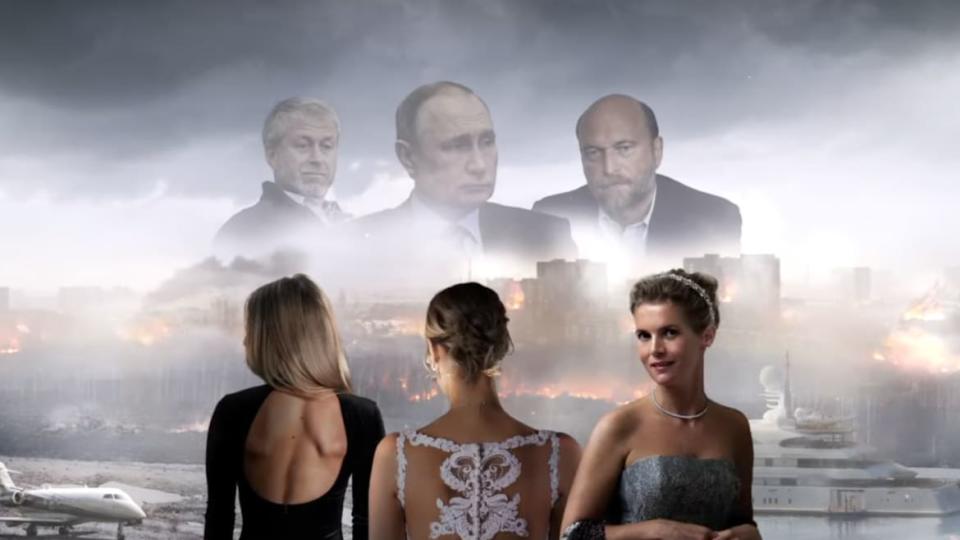Russia’s Oligarch Wives Claim Putin Is Suffering From a Secret Illness

According to everyone featured in Secrets of the Oligarch Wives, Vladimir Putin is a ruthless, greedy, sociopathic monster who cares only about his own power, wealth, and legacy as a titan who united and restored the glory of Mother Russia. The ongoing war in Ukraine, as well as the continued imprisonment and mistreatment of opposition leader Alexei Navalny, corroborates those claims, although the true hook of the Paramount+ documentary about the Russian president is its insider commentary from the women who were closest to the authoritarian’s oligarchs. What they have to say isn’t particularly shocking, but it’s certainly further evidence that the world is in peril from a man willing to do anything, to anyone, to achieve his own ends.
Narrated by Ranvir Singh and executive produced by Justine Kershaw, Laura Jones and David McNab, Secrets of the Oligarch Wives (out June 28) is a portrait of Putin as “the most dangerous man on the planet,” told largely by a collection of women with ties to bigwigs whose lives were deeply affected by him. There are only two nominal “oligarch wives” spotlighted by this 90-minute documentary—Countess Alexandra Tolstoy (a distant relative of Russian writer Leo Tolstoy), who spent years alongside oligarch Sergei Pugachev; and Tatiana Fokina, the spouse of exiled cellphone oligarch Evgeny Chichvarkin—and even then, the former was never formally married to her Russian billionaire partner. In terms of false advertising, this is a moderate case, if not an ultimately disastrous turn of events, given that the speakers do an adequate job providing first-hand accounts of the turmoil and terror wrought by Putin against anyone who dares stand in his way.
Inside Sundance’s Top-Secret Documentary on Putin Target Alexei Navalny
For its opening third, Secrets of the Oligarch Wives functions as a basic primer on Putin’s rise to power. When the Soviet Union fell in 1989, Putin was a KGB agent stationed in Dresden, East Germany, and in Russia’s ensuing “wild west” of the 1990s under President Boris Yeltsin, he rose through the country’s political ranks, eventually becoming Yeltsin’s successor when the leader abruptly resigned from his post on Dec. 31, 1999. According to financier and political activist Bill Browder, Yeltsin had propped up his failing nation—racked by pervasive unemployment, food shortages, and crumbling state industries—by selling 40 percent of the country to 22 oligarchs, borrowing money from them and then defaulting on the loans. This created a class of oligarch billionaires with not only untold riches but massive political clout, and this group hand-selected Putin as Russia’s new president, assuming he was a “boring functionary” who’d do their bidding.
They were wrong. Though Yeltsin had turned a blind eye to the oligarchs, who basically operated as mafia bosses, Putin decided that he’d become Russia’s chief Godfather, demanding huge cuts of their profits (and their unwavering loyalty), and dishing out severe penalties for anyone who disobeyed his wishes. For critical voices in the FSB like Alexander Litvinenko, that meant fatal poisoning. For his former businessmen allies, it meant criminal prosecution and the seizure of assets. Far from a “malleable pawn,” Putin revealed himself to be a cagey tyrant with no limits. Yet since he’d initially appeared to be a young, vibrant, open-to-the-West “breath of fresh air,” most were happy to overlook his more dictatorial actions. Even when the mysterious deaths of opponents began piling up, those crimes were carried out with enough plausible deniability to provide others with justification for continuing to do business with him.

 Yahoo Autos
Yahoo Autos 